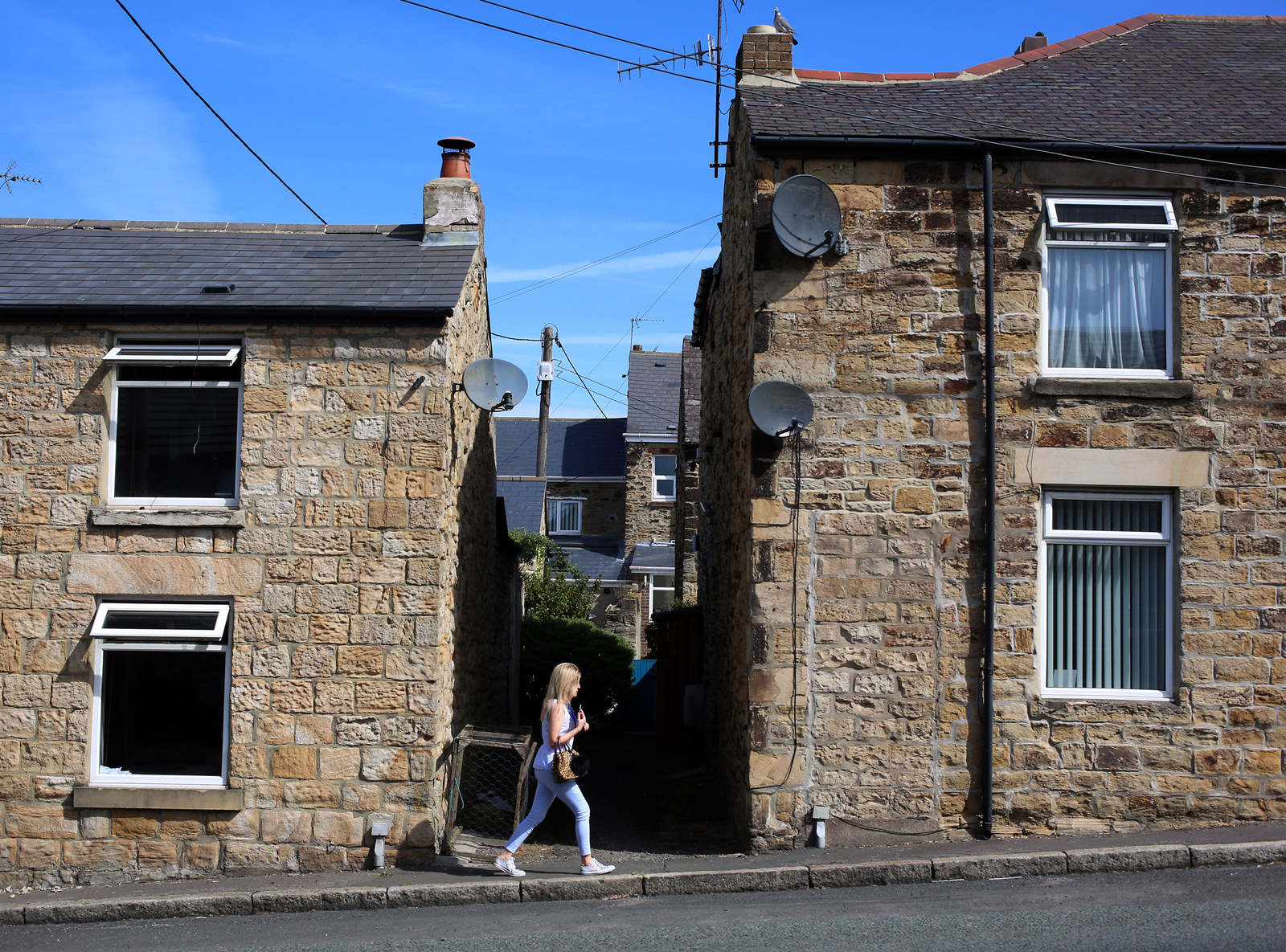The early summer sun shines down, bathing the landscape in glory. Here, in the far north of County Durham, a pub called the Miners Arms sits at the end of a row of terraces. Just down the road, the parish church stands halfway up the hill the town is built on, as it has done for more than 150 years. And in the distance, a patchwork quilt of green fields and hills stretches as far as the eye can see. This is Consett, once home to a thriving steelworks that gave the town its identity and saw it grow from a tiny village to a settlement of 25,000 people.
One of the defining moments in Consett's history came when the industrial plant shut its doors in September 1980, putting thousands of people out of work. Margaret Thatcher was prime minister, and the closure of the steelworks preceded pit closures that led to miners strikes across the North East. Today, Consett is a dormitory town, home mostly to commuters who find work in the North East's bigger towns and cities, and a Tesco Extra stands in the steelworks' place.
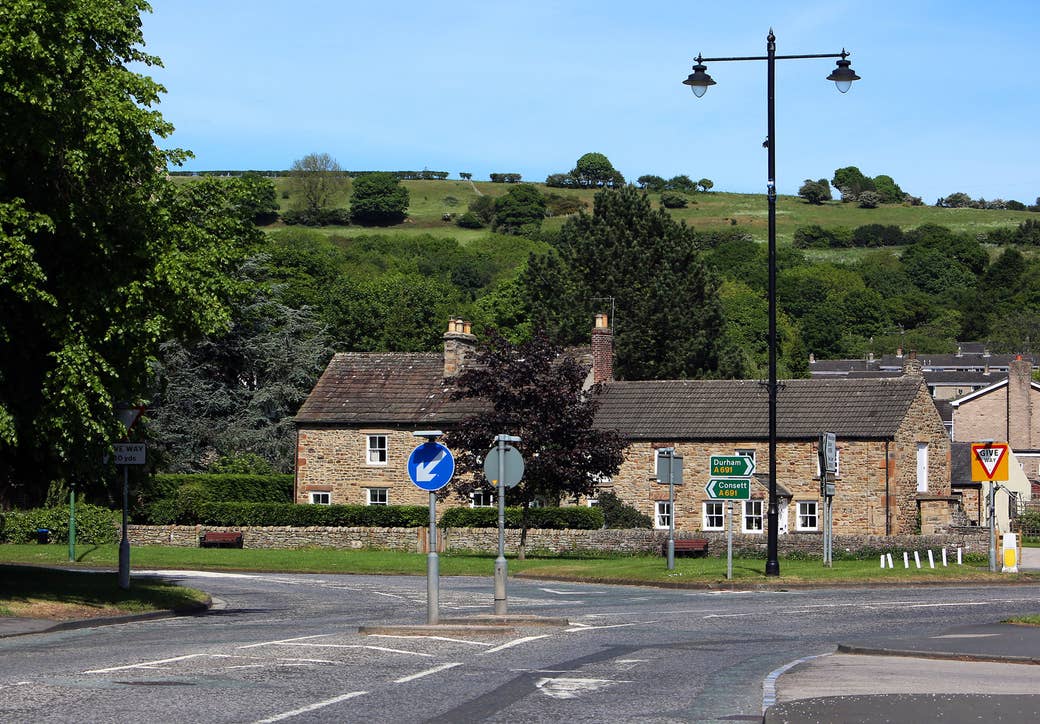
Consett sits right in the middle of Labour's heartlands. With higher than average levels of poverty and unemployment, strong links to trade unions, and long memories that will not forgive the Thatcher years, the majority of seats in the North East have consistently elected Labour MPs.
But the tide is beginning to turn. Geographically far from London, and regarded by both major parties for many years as a foregone conclusion, the North East was largely left alone to vote Labour. But for the first time in living memory the Conservatives are targeting seats across the region.
Capitalising on Labour voters' feelings of abandonment and neglect, as well as strong Brexit support across the North East, the Tories think they have a chance of taking seats like North West Durham, home to Consett and many similar former steel and colliery towns.
To the north of Durham is Sunderland, where two parliamentary seats – Sunderland North and Sunderland South – used to race to count the Labour votes and be the first in the country to declare. After boundary changes, the two consistencies no longer exist, and as the boundaries have changed, so has the political landscape. The referendum result was telling, when Sunderland's voters were not convinced by Labour's message and gave the first indication of what was to come, declaring that 61% of votes had been to leave the European Union, while only 39% had voted to remain within it.
And to the south is Blair country. In Sedgefield the former Labour leader once commanded majorities of more than 25,000 votes, but now Labour has a lead of less than 7,000. The seat has been held by Labour for 86 years, but this time the Tories think they have a chance here, and high-profile figures such as the chancellor Phillip Hammond have been sent up to bolster the campaign.
Slightly further south is the Tees Valley, which shocked the nation last month by electing a Conservative mayor. Labour also faced a further upset in the area this week when Stockton councillor Stephen Parry, who represented Billingham North, unexpectedly resigned from both his council position and the Labour party, saying he would be voting for the Conservatives.
Parry, who has a background in the military, told The Gazette: “There is a real possibility that this election could make Jeremy Corbyn our prime minister. I cannot support him, he has shown a total disregard for our national security, and seems always to back our country’s enemies.
“Jeremy Corbyn would be a disaster negotiating Brexit. Theresa May has a much better chance and it is such an important moment for our country. Even many Labour MPs have no faith in Jeremy Corbyn. With the polls now getting close, I could never be part of a party that made Jeremy Corbyn Prime Minister and I cannot stand aside silently.”
No doubt capitalising on the groundswell of support in the region, as well as antipathy to the EU across the North East, Theresa May chose Teeside as the location for her showpiece Brexit speech last week in which she said Britain had been freed from the “shackles” of Brussels.
It was at least the third time the prime minister has travelled to the North East during the campaign, while Corbyn, the Labour leader, paid his first visit to the region on Monday, just three days before polling day.
In Consett, the Conservative candidate Sally-Ann Hart is knocking on doors in the Blackhill area. Earlier this week, she says, she attended a hustings in the local church – the first of its kind since 1984.
Hart, a lawyer who was born in the North East and now lives in East Sussex, says she is "determined to win the seat" on 8 June, and that she believes there is a real chance that she can take North West Durham from Labour.
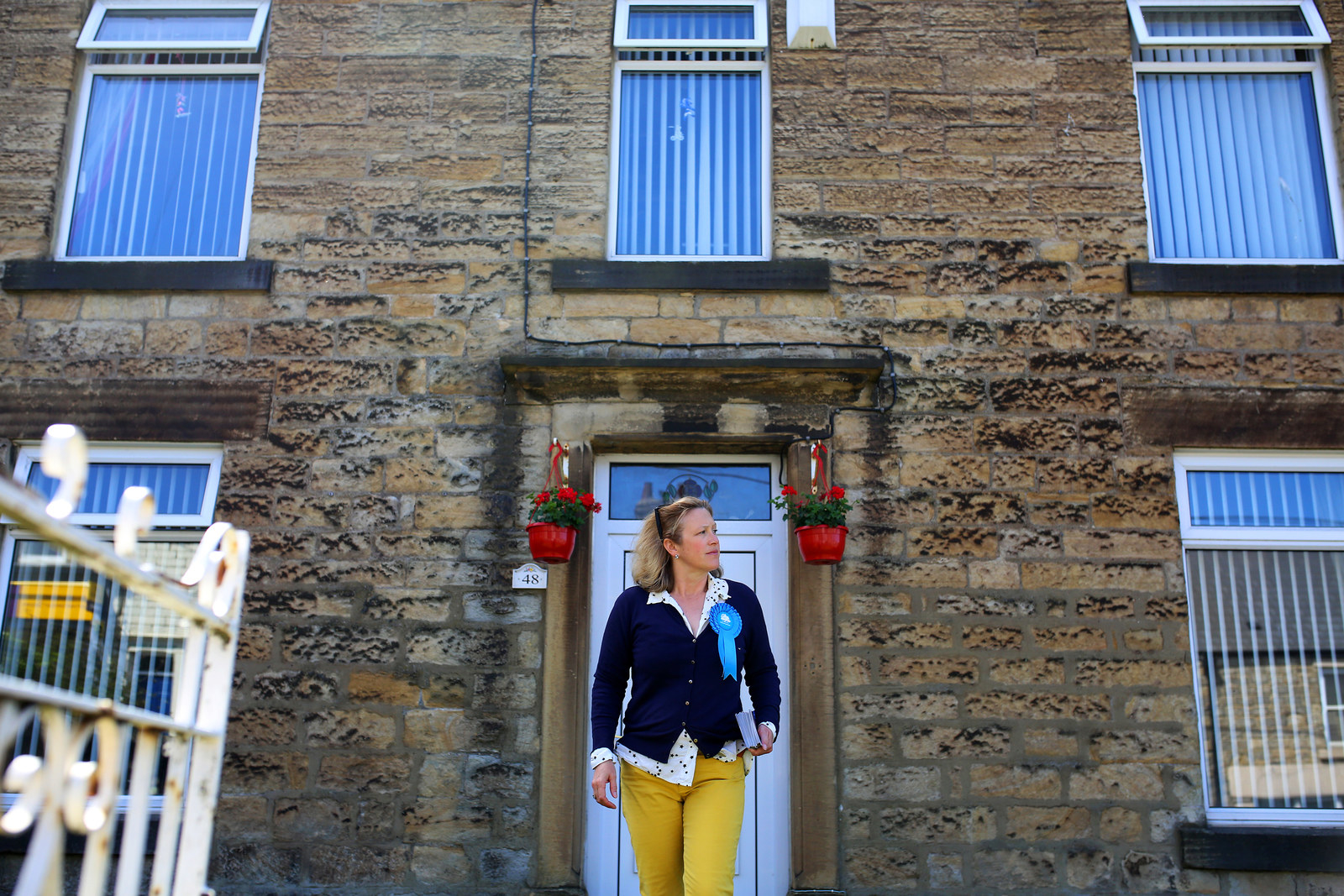
"There is a Brexit point to it all," she says, "but there is also a swelling resentment against Labour, and taking people for granted up here.
"Coming up here I was quite shocked at how little Conservative activity there was. I think that's because of generations of very strong Labour support.
"It's an old steelworks town, an old mining constituency. Labour still push the closure of the mines by Margaret Thatcher – but that was 30 years ago. We've got to make sure the job opportunities are modern.
"Brexit is on the cards, definitely, and it's something people talk about – people up here will vote for Theresa May to take us out of the EU, she's the only one who can do it. But they talk to me more about feelings of being taken for granted, being forgotten about by Labour."

She continues: "Some Conservatives say to me on the doorstep, 'What's the point?', but I say to them, 'Get out there, your vote will really count this time.' When we win this seat, my first job is going to be to embed conservatism in this area."
Graham Riddick, the former Tory MP for Colne Valley, who is helping to run Hart's campaign, also has high hopes for North West Durham.
"It is in play for the first time ever as possible gain for the Conservatives," he says. "A poll in the [Newcastle] Chronicle showed the Conservatives in the lead."
On the doorstep, 83-year-old Stephanie McGeoghegan is voting for Hart – although her personal reasons for voting Conservative stem more from a dislike of Jeremy Corbyn than a feeling of being forgotten by Labour, or a desire to see Britain leave the EU.
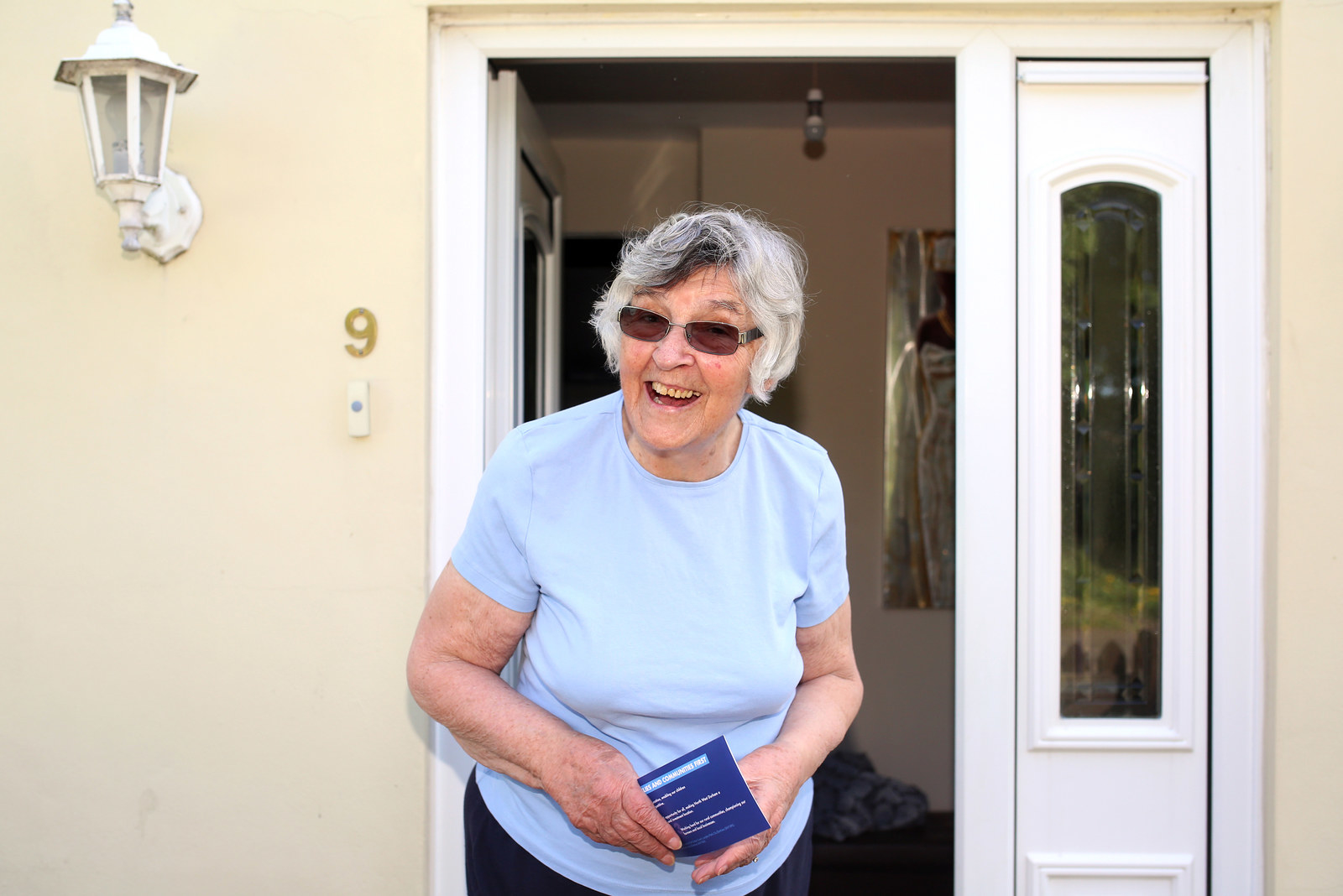
"I can't stand that other bloke," she says. "I was worried when [the Conservatives] seemed to go down a bit in the polls. I don't know anybody that isn't voting Conservative, to be honest – Labour voters are going to be voting Conservative this time. Whatever he says, you can't believe anything."
Down the road in Tanfastic sunbed shop, 46-year-old Amanda Glassasper is also voting Conservative.
"I just don't think Labour has done a great deal to be honest," she says. "Years ago they made promises, but nothing ever happened. I don't agree with everything, but the majority I agree with. I think people vote Labour for the wrong reasons."
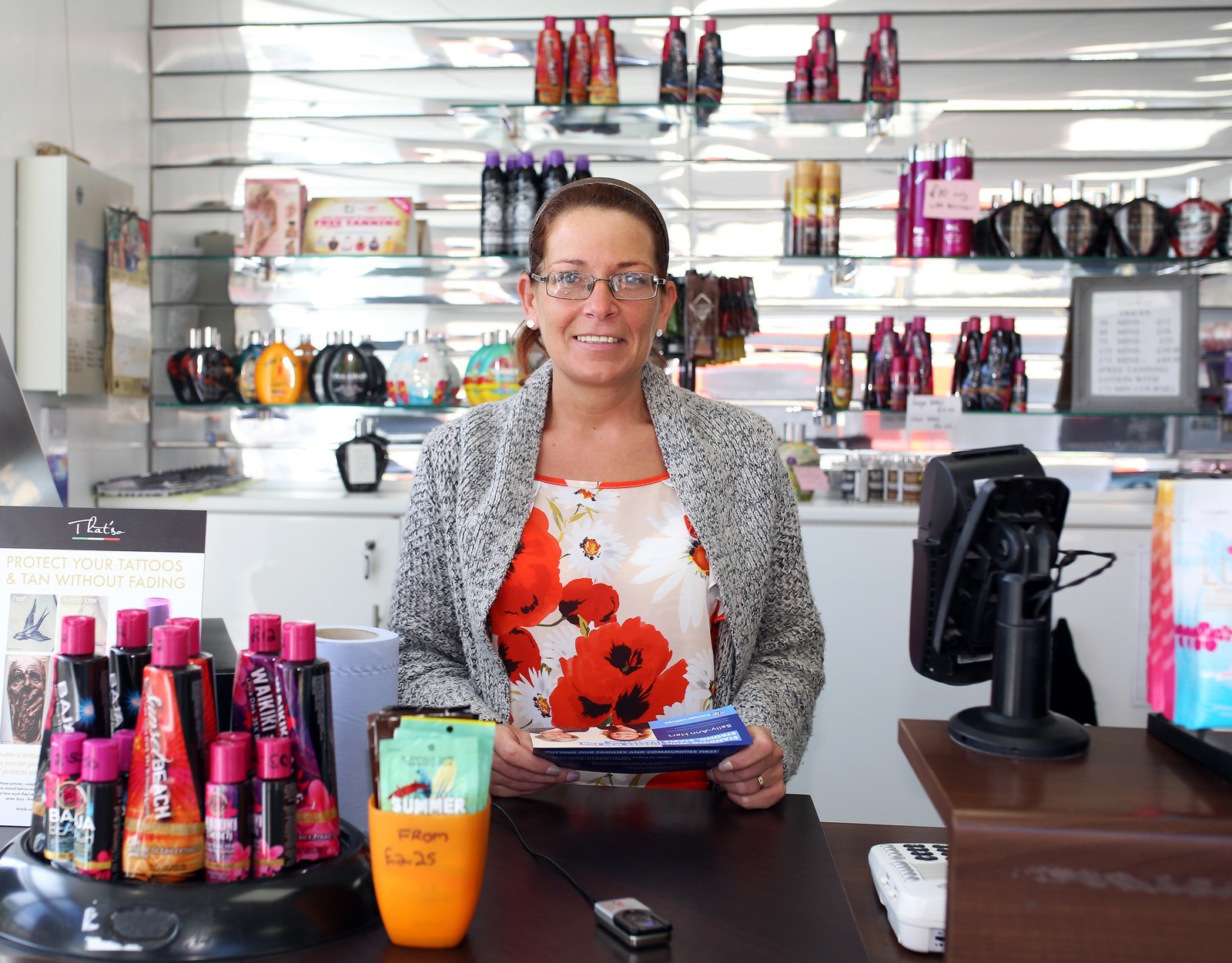
Outside the shop, Tommy Wilkinson, a 29-year-old welder and engineer, stops to talk to Hart. He says he will be voting for the first time – and voting Conservative.
"I've never really voted before," he says. "I'm a punk and that scene has always been against it. They [the Conservatives] have come face-to-face, and I think it's very good that they've come face-to-face.
"Seeing someone as a bit of paper, seeing them on there you don't have respect for them. Seeing people face-to-face is important, it takes guts to do that."
Down the road in Lanchester a pensioner named Shirley is sitting on a bench in the sun, reading the Daily Mail.
Shirley, who does not want to give her full name, voted Labour last time, but this time she's probably going to vote Conservative.
"Often when I vote I'm undecided until I get over the doorstep," she says. "With Brexit it's simply the leadership thing. Theresa May had experience in government, she was the home secretary.
"We don't know what kind of leader [Corbyn] is. He has no experience to get us through this. It's going to be a difficult time.
"I voted Labour last time because I didn't like David Cameron, I thought he had his head in the sand."
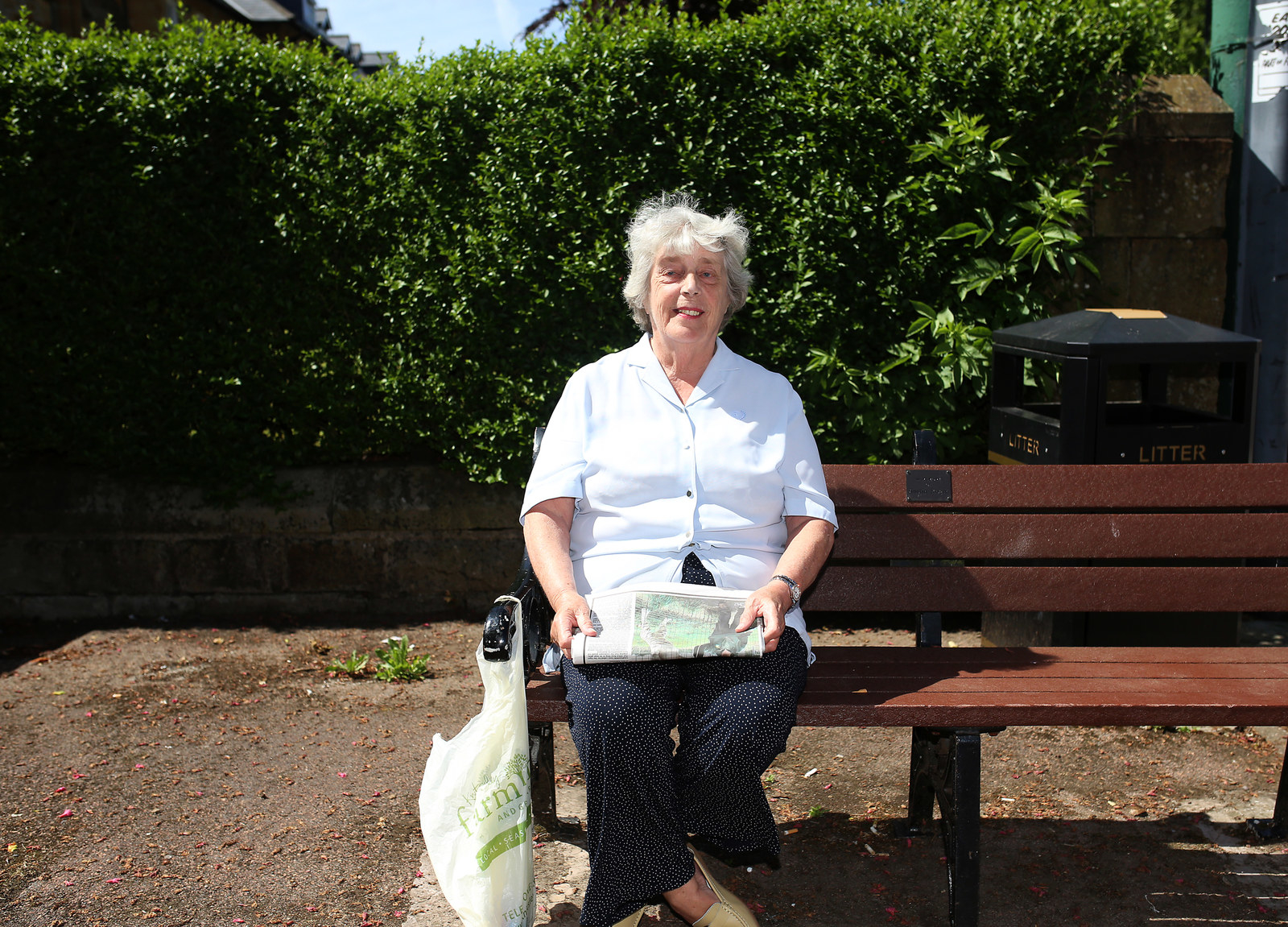
Lanchester, a picture-postcard town five miles south of Consett, is home to the constituency's Labour candidate, 29-year-old Laura Pidcock.
She agrees she has a fight on her hands to keep the seat Labour. "We're not being complacent here," she says. "We know that it's tight, we know that it's ours to lose, but we're out there all day every day." She gestures towards a huge team of canvassers gathering in the car park of the local pub for the morning door-knocking session.
When asked whether voters in the North East have been taken for granted, she responds by saying: "Taken for granted by Conservative governments, I'd say you're absolutely right.
"We've lived and breathed the scars of deindustrialisation. We haven't been taken for granted by working-class people, we've been taken for granted by people who don't care about our children living in poverty, about school closures, the severe underfunding of the NHS."
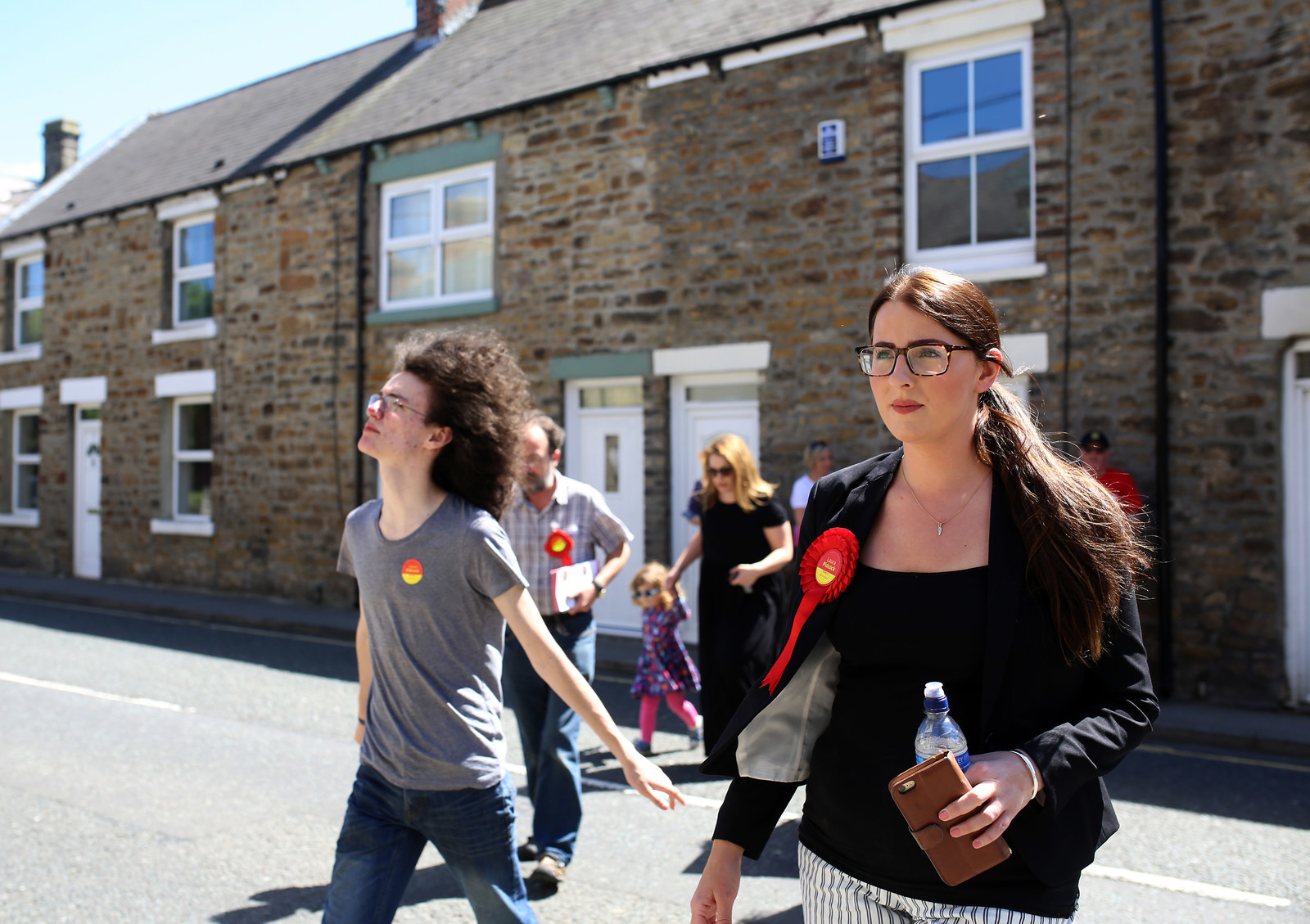
Pidcock says that "without a doubt" there are voters who haven't forgiven the Tories for the 1980s, "and they shouldn't. It was all-out war on our people. What they did, what Thatcher did, to those healthy mines and steelworks.
"I don't think people should forgive the Tories for their legacy. People are still feeling the effects of that Tory era."
One 75-year-old man, who declined to give his name, certainly hasn't forgotten, and says he will be voting Labour on 8 June.
"The Conservatives closed the shipyards and I lost my job," he says. "Many, many people think the same as me. When I started working the shipyards there were thousands of men on the river."
But Pidcock says it isn't just about the past. She believes the release of the Labour manifesto was a real turning point in the campaign that has seen the Conservatives' hopes in North West Durham diminished.
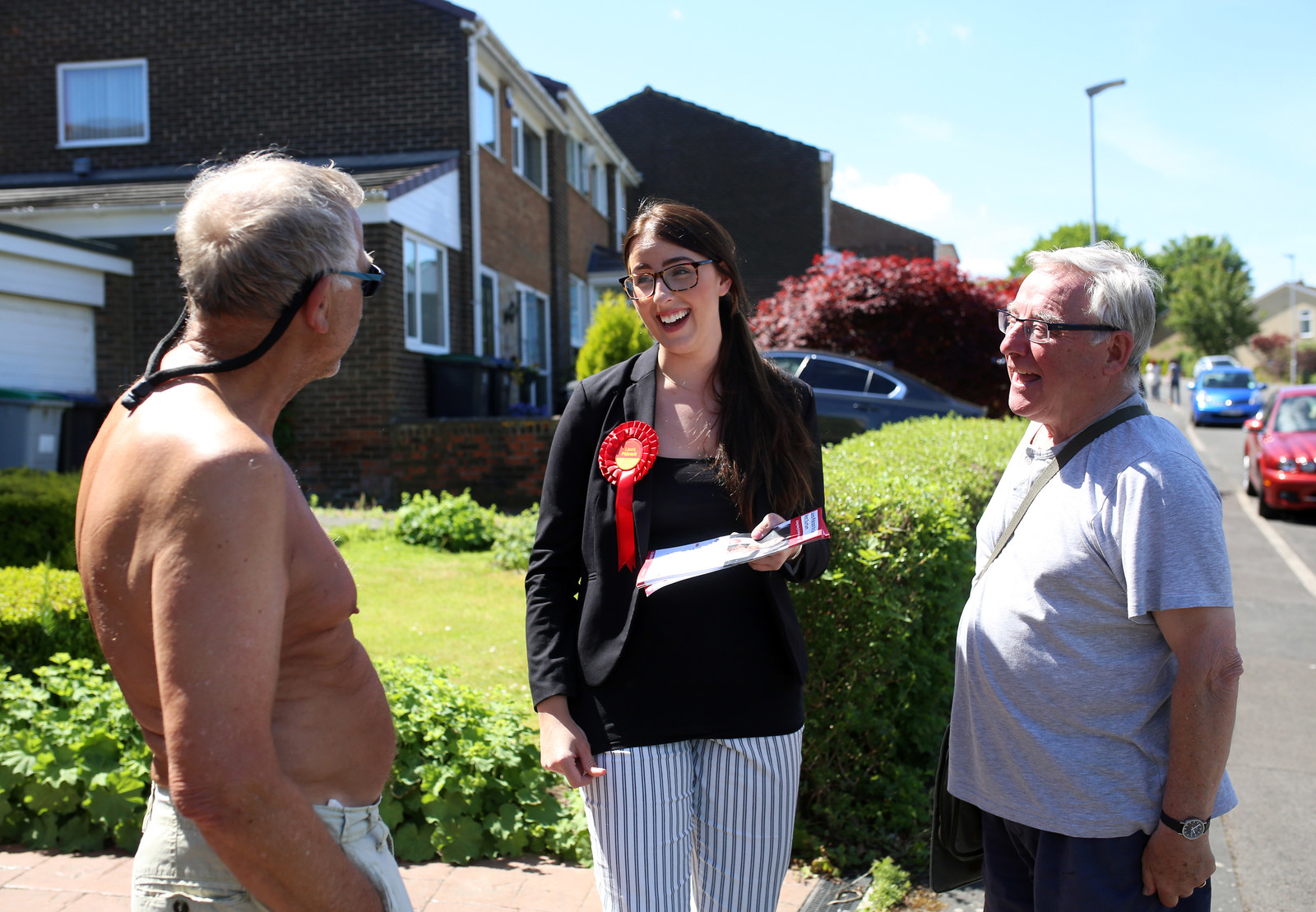
"From the week of the publication of both manifestos there was a massive sea change," she says. "Things really changed on the doors. It's a fully costed manifesto of hope versus an uncosted manifesto of misery.
"I've campaigned in many, many general elections, and in the past people have said 'you can't put a fag paper between Labour and the Tories', but we've not had that once.
"This is the proudest I've been of any manifesto I've campaigned on. We're now seeing a real upsurge of hope and enthusiasm."
Sarah Milburn, a 43-year-old teacher, seems to agree. "I think there's been a shift," she says. "At the start of the campaign Theresa May had the majority of support of people round here, because of Brexit.
"The campaign hasn't gone as well as she thought – the majority of North West Durham will still vote Labour.
"Jeremy Corbyn's policies are selling themselves. The NHS, public services, social care – for all of it I want Jeremy Corbyn in. It worries me what will happen if the Tories get in, especially up here."
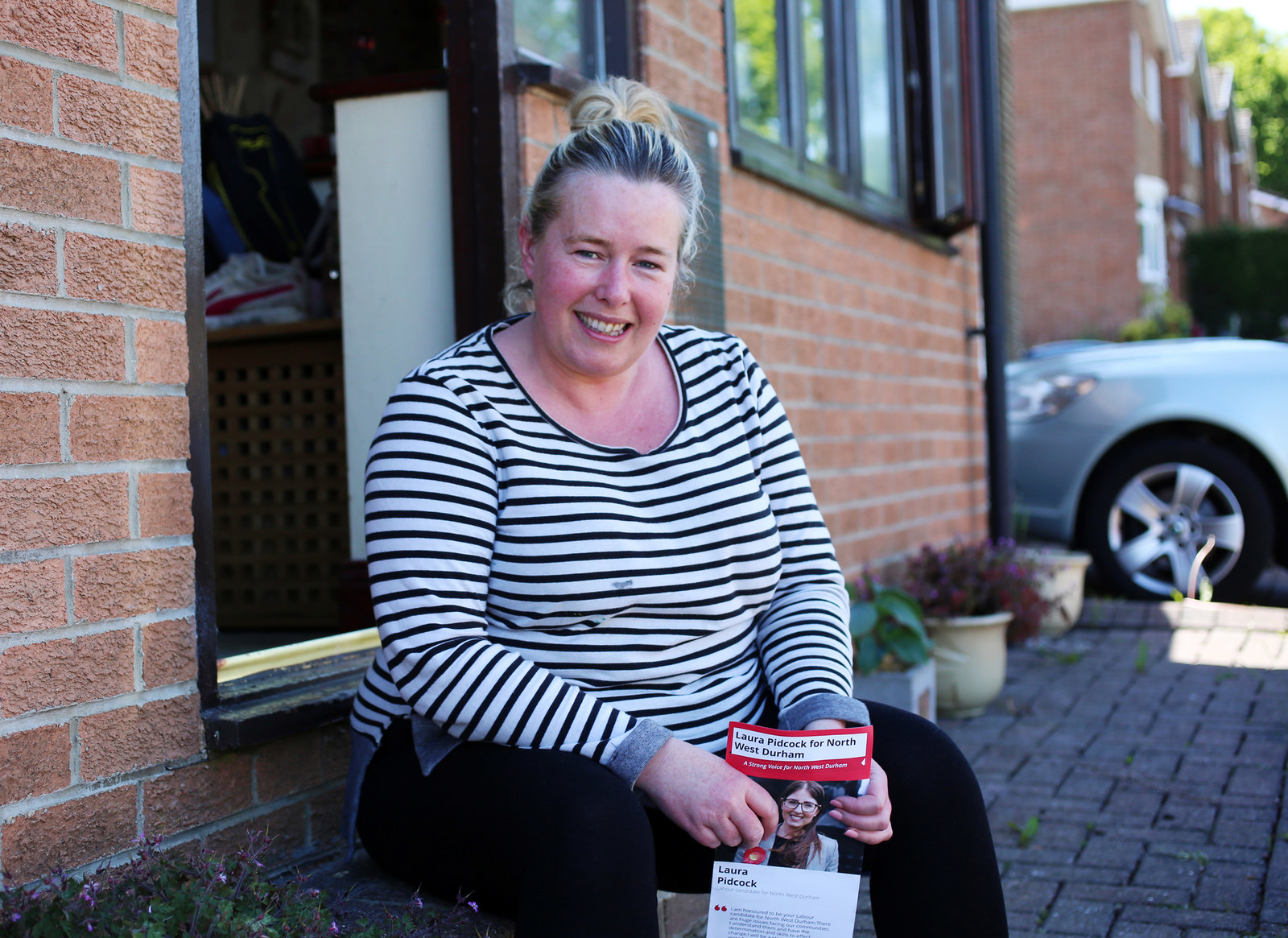
With a Labour majority of more than 10,000 and the polls tightening between Labour and the Tories with just days to go, the mountain the Conservatives have to climb may be too high.
But what is evident is that as memories fade, as a younger generation grow up not remembering the divisions of the '80s, and as issues like Brexit and immigration blur the dividing lines between traditional Labour and Tory voters, the North East is no longer the foregone conclusion it once was.
